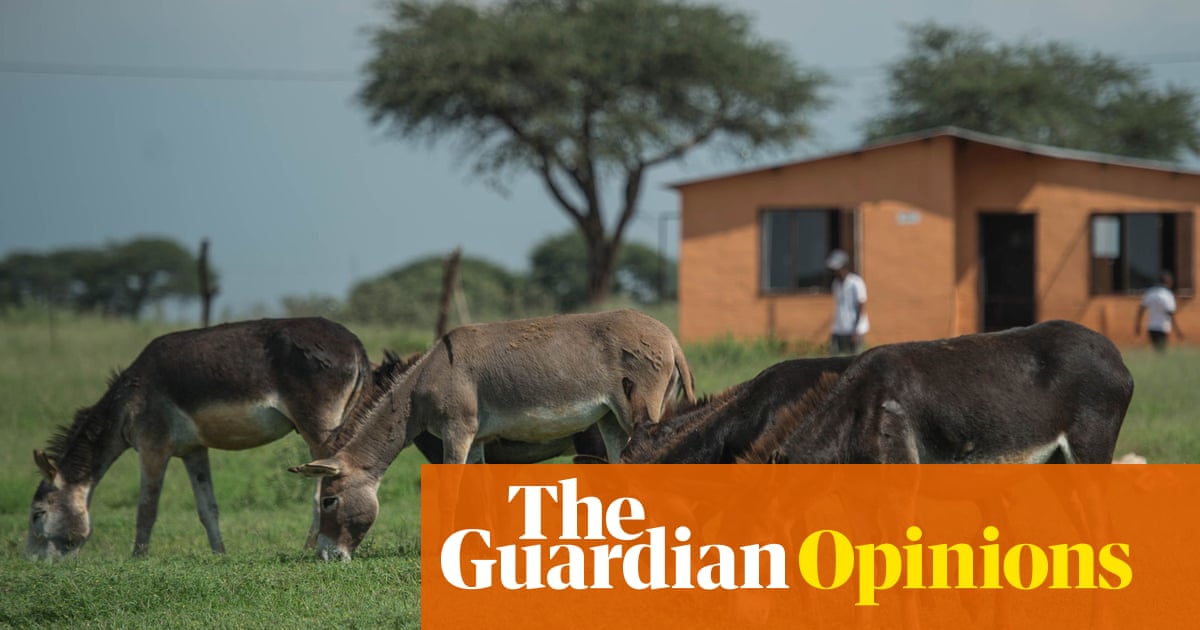What can help to protect women’s health, boost the incomes of impoverished families and thus allow girls to avoid early marriage? What – whenit disappears– can set back children’s education, damage mental wellbeing, drive conflict within communities and become a vector for racial hatred?
The humble donkey has rarely been in the spotlight. Yet Chinese demand for its skin proved so destabilising that African governments agreed toa continent-wide banon the slaughter of the animal for its hide last year. This week, officials are meeting in Ivory Coast to discuss implementation.
A recentpaperby Dr Lauren Johnston of the University of Sydney outlines the extraordinary rise and fall of the Sino-African trade in donkey skins, and its repercussions. Ejiao – donkey hide gelatine – was first developed around 3,000 years ago and is used in traditional Chinese medicine, and more recently in beauty products. Longstanding demand was supercharged by growing prosperity and media influence, reportedly surging after characters in a popular Chinese TV period drama, Empresses in the Palace, were shown taking it. But while production of ejiao had been industrialised, a problem soon emerged: donkeys are notably hard to breed. Ejiao consumption equates to 4m to 5m hides per year, equivalent to almost a tenth of the global donkey population. China’s stock of animals plummeted from 11 million in the early 1990s to just 2 million – and attention turned to African hides.
The continent is home to almost two-thirds of the world’s 53 million donkeys. Their use as beasts of burden there dates back even further than the invention of ejiao; owners describe them aspriceless. Despite governments’ attempts to regulate the trade in hides, there were repeated complaints not only of inhumane treatment but also crime; on one estimate, as many as a third of the exported hides were stolen. Families woke to find their animals had vanished, or been slaughtered and skinned on the spot.
Many could not afford to replace them, because the price of new animals had soared. Without the creatures, women are often forced to carry heavy loads of firewood or water; children may be kept home to help with chores; families can no longer rent donkeys to neighbours, reducing their incomes. Former owners reported reduced wellbeing and increased stress. Some suspected their neighbours of stealing their donkeys, and in South Africa, online posts about Chinese gangs involved in the illicit trade attracted commentsinciting racial hatred. The African Union ban may tackle some of these problems. But it may also be shifting them. In Pakistan, the price of the animalshas rocketed.
The case of the missing donkeys may sound like a niche concern but is really a particular instance of a pressing global issue. Oil and minerals may get the attention, but growing competition for resources – driven by increasing prosperity in economies such as China and India and the pace of consumer culture – can pop up in unexpected areas, hit the poorest hardest and create new diplomatic, social and economic tensions. Addressing such cases will take not only determination but ingenuity and a willingness to work with unlikely allies: Africa’s ban was driven by a coalition of farmers, animal rights campaigners, economists, gender activists, religious leaders and others. It will also need to be done at speed. The donkey shock is not a one-off, but a warning of other potential flashpoints ahead.
Do you have an opinion on the issues raised in this article? If you would like to submit a response of up to 300 words by email to be considered for publication in ourletterssection, pleaseclick here.
